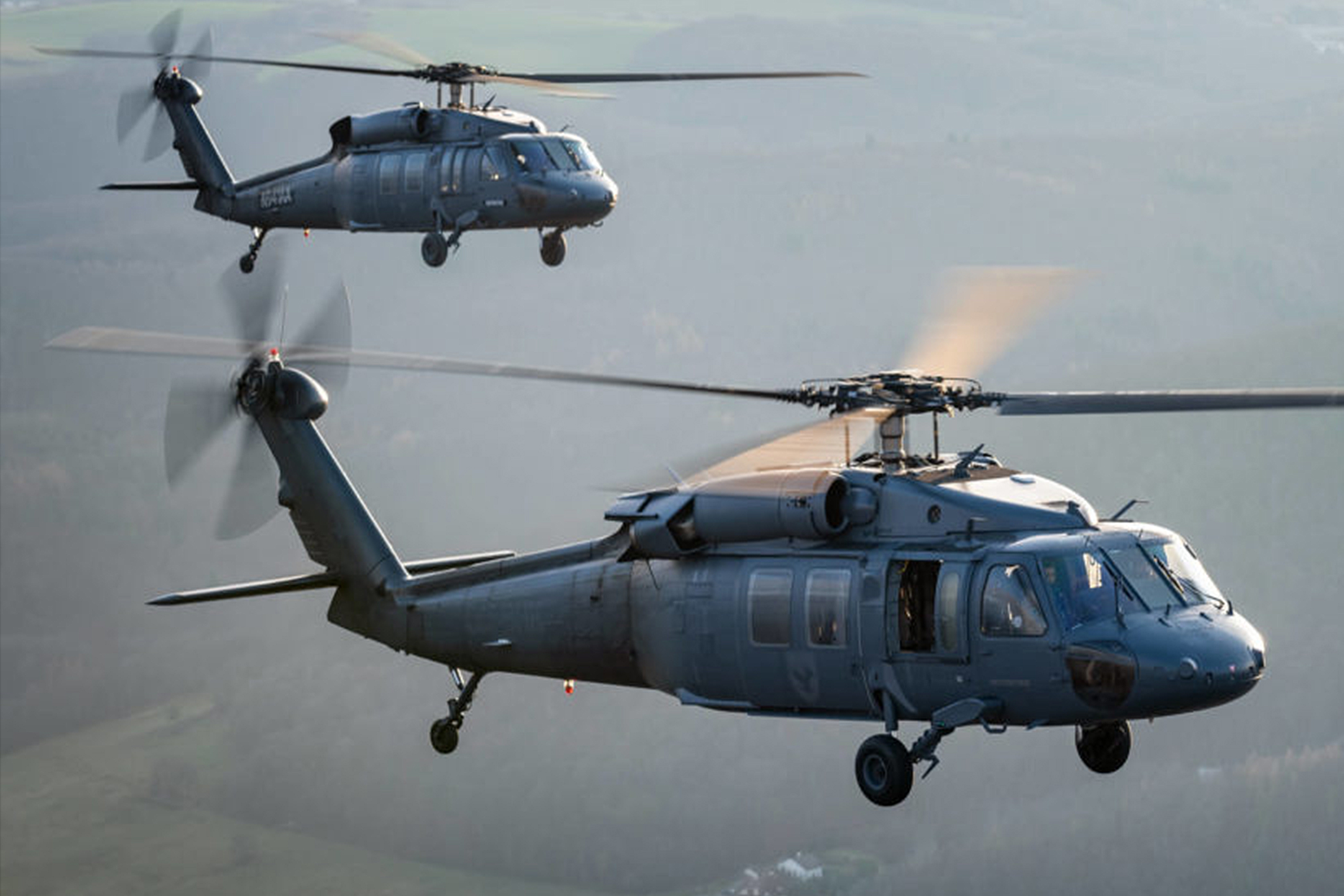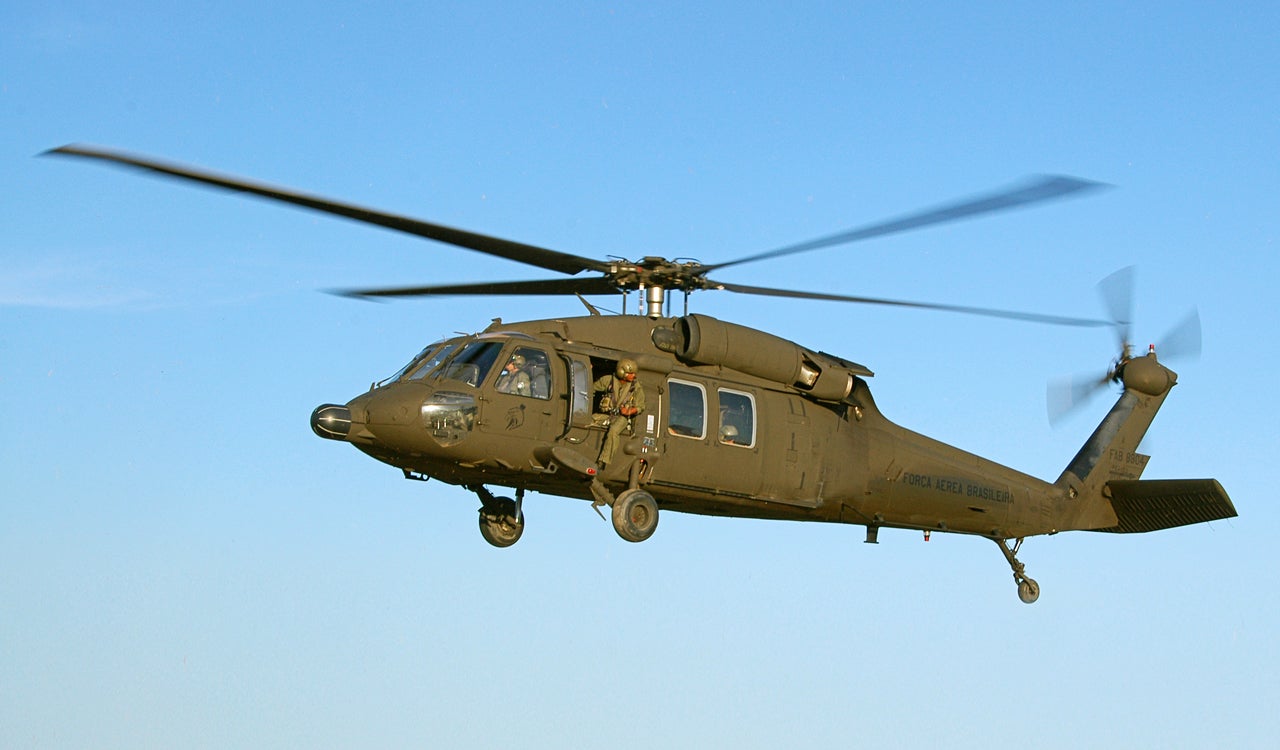UH 60 Black Hawk: From Idea to Modern Applications
UH 60 Black Hawk: From Idea to Modern Applications
Blog Article
The Impact of Lasting Practices on the Future of Airplane Procedures and Emissions Decrease
As the air travel sector deals with boosting examination over its environmental effect, the adoption of sustainable methods emerges as an important pathway toward future airplane procedures and exhausts reduction. Innovations in lasting aeronautics gas and improvements in crossbreed propulsion modern technologies stand at the center of this makeover, encouraging substantial decreases in greenhouse gas discharges.

Introduction of Sustainable Practices
Sustainable methods in airplane operations include a series of approaches aimed at decreasing ecological influence while maintaining functional efficiency. These methods are vital in the aeronautics industry's commitment to lessening its carbon impact and sticking to global environmental requirements. Trick campaigns consist of optimizing flight paths to minimize gas intake, boosting upkeep protocols to ensure aircraft operate at peak performance, and executing innovative innovations such as winglets and light-weight materials that enhance the rules of aerodynamics.

Training and engaging team on sustainability practices also play a vital role, promoting a culture of ecological responsibility within companies. Generally, the integration of these lasting methods not only helps in reducing discharges however likewise boosts the long-term viability of the aviation industry, ensuring it fulfills the demands of both clients and regulatory bodies while contributing to worldwide sustainability goals.
Ingenious Fuel Alternatives
Numerous innovative gas choices are emerging as pivotal remedies to decrease the aviation industry's dependence on standard fossil fuels. Amongst these choices, Sustainable Aviation Fuels (SAFs) have actually gotten considerable interest due to their potential to reduce lifecycle greenhouse gas emissions by up to 80% contrasted to traditional jet gas. SAFs are originated from numerous feedstocks, including waste oils, agricultural deposits, and even algae, making them a versatile alternative for the market.
Another encouraging alternative is hydrogen fuel, which, when made use of in fuel cells, creates only water vapor as a result. Furthermore, electrical propulsion systems are being explored, leveraging battery innovation to power aircraft.
Last but not least, biofuels originated from biomass are being examined, offering an eco-friendly choice that can be combined with standard fuels. Jointly, these cutting-edge fuel options stand for a vital action toward attaining a lasting air travel community, straightening with worldwide emissions decrease targets and enhancing the market's ecological stewardship.
Technological Advancements in Air Travel

How can technological developments reshape the future of aviation? Developments such as electric and hybrid propulsion systems are at the forefront, promising significant decreases in fuel intake and greenhouse gas emissions.
Moreover, the application of advanced products, such as lightweight compounds, contributes to enhanced aerodynamics and fuel performance. Using expert system and artificial intelligence in flight procedures maximizes route preparation and lowers fuel shed by enabling real-time modifications based upon climate and website traffic problems. Furthermore, the imp source growth of independent and remotely piloted aircraft systems stands to revolutionize freight and traveler transport, possibly raising effectiveness while reducing human mistake.
Furthermore, lasting aviation modern technologies, including advanced air web traffic management systems, can simplify procedures and reduce congestion, bring about lower exhausts during trip. These developments jointly stand for a paradigm shift in air travel, guaranteeing a future where sustainability and functional efficiency are linked, consequently sustaining the market's dedication to minimizing its environmental effect.

Governing Framework and Compliance
Because of the expanding focus on ecological stewardship within the aviation field, the regulative framework controling aircraft procedures is progressing to promote sustainable methods. Governing bodies, such as the International Civil Aeronautics Company (ICAO) and numerous nationwide air travel authorities, are presenting rigid guidelines you can try this out focused on lowering discharges and boosting operational performance.
These policies typically consist of the fostering of Lasting Aviation Gas (SAF), which has been identified as an essential component in accomplishing reduced carbon footprints. In addition, compliance with these guidelines calls for airline companies to apply sophisticated modern technologies and operational methods, such as optimized flight courses and enhanced air website traffic management, to reduce gas intake.
Furthermore, the enforcement of discharges trading systems and carbon countering initiatives is coming to be progressively common, compelling airline companies to keep an eye on and report their discharges precisely. Non-compliance can lead to significant penalties, therefore pushing operators to focus on sustainability in their organization versions.
Ultimately, the developing regulative landscape not only drives advancement and investment in environment-friendly technologies but additionally promotes a society of accountability within the air travel sector. As these structures remain to create, the concentrate on sustainable practices will certainly be important to accomplishing the sector's long-lasting ecological goals.
Future Patterns in Airplane Procedures
As the aviation market adapts to a significantly stringent regulative environment, future trends in aircraft operations are established to concentrate on innovative services that additionally enhance sustainability and efficiency - uh 60. Trick developments will likely include the fostering of innovative air website traffic management systems, which make use of real-time information and synthetic intelligence to maximize trip courses, reducing gas usage and emissions
An additional considerable pattern is the increased assimilation of sustainable aviation fuels (SAFs) These alternatives to standard jet gas, originated from eco-friendly sources, can significantly decrease lifecycle greenhouse gas discharges. The sector's commitment to SAFs will likely speed up as airline companies collaborate with gas manufacturers to make sure schedule and cost-effectiveness.
In addition, the press in the direction of electrification and crossbreed propulsion systems is getting momentum. Emerging aircraft styles will Going Here incorporate these innovations, providing quieter and a lot more efficient procedures, particularly for short-haul trips.
Final Thought
To conclude, the assimilation of sustainable methods in airplane operations holds considerable possibility for discharges reduction and improved performance. The adoption of sustainable aeronautics fuels, coupled with improvements in electric and hybrid propulsion systems, is crucial for reducing lifecycle greenhouse gas exhausts. Optimizing flight courses and accepting innovative innovations add to a quieter and extra environmentally friendly air travel market. Collectively, these initiatives align with international sustainability goals and lead the means for a greener future in aviation.
Innovations in sustainable aeronautics fuels and improvements in crossbreed propulsion modern technologies stand at the center of this makeover, promising significant decreases in greenhouse gas discharges.Many ingenious fuel alternatives are emerging as crucial solutions to lower the aviation market's reliance on traditional fossil gas - uh 60. Amongst these options, Sustainable Aviation Gas (SAFs) have actually gotten significant attention due to their prospective to reduce lifecycle greenhouse gas exhausts by up to 80% contrasted to conventional jet fuels.One more substantial pattern is the boosted assimilation of lasting aeronautics fuels (SAFs) The adoption of sustainable air travel fuels, paired with developments in hybrid and electric propulsion systems, is necessary for decreasing lifecycle greenhouse gas emissions
Report this page